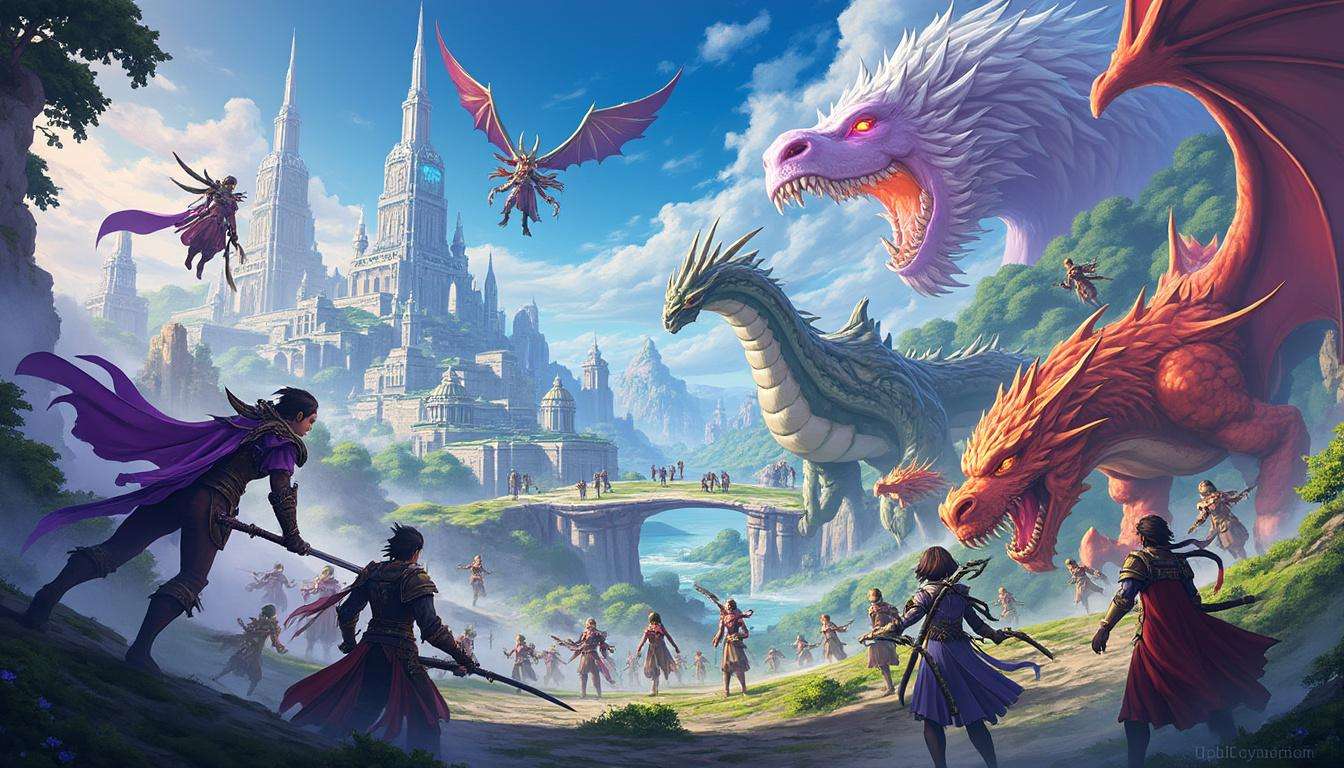South Korean MMORPG developers are boldly redefining their approach to gaming by shifting focus from mobile platforms to powerful PC and console experiences. This strategic pivot reflects an ambition to recapture the global audience that once thrived on iconic titles like Blade & Soul, Lost Ark, and Lineage II. As mobile saturation has peaked, Korean studios are innovating with highly immersive and visually stunning games that leverage cutting-edge engines, such as Unreal Engine 5, to engage both longtime fans and new players in markets worldwide. This resurgence not only signals a commitment to reviving the MMORPG genre but also aims to compete with Western gaming preferences by emphasizing buy-to-play models and high-quality narratives. Players can expect fresh adventures spanning fantasy realms and sci-fi universes, enhancing diversity across the genre and reasserting Korea’s influence in the global multiplayer space.
The industry’s changing landscape is marked by notable releases tied to renowned franchises such as Black Desert Online, Aion, and TERA, alongside new IPs that promise compelling innovation. Titles like Guild Wars 2 and MapleStory, while rooted in their established lore, are also adapting to this PC and console renaissance with revamped gameplay features that optimize user engagement. Importantly, this shift challenges the notion that South Korean MMORPGs are predominantly mobile-centric, reaffirming their strength in delivering expansive virtual worlds where player communities flourish. The palpable excitement at major gaming events and rising pre-orders underscore a market ready to embrace this new era of MMORPGs designed for deeper, more graphically intense experiences.
New Korean MMORPG Releases for PC and Console Reignite Interest in the Genre
The latest PC and console MMORPG titles from South Korea are setting the stage for a revitalized competitive arena. Developers are no longer content with mobile-first strategies and are investing heavily in the technology and storytelling that made games like Blade & Soul and Black Desert Online global phenomena.
- Next-gen graphics: Utilization of Unreal Engine 5 to deliver stunning visual fidelity unmatched on mobile devices.
- Expanded gameplay depth: Enhanced systems for crafting, combat, and player-driven economies that reward strategic engagement.
- Multiplatform accessibility: Seamless cross-play features allowing PC and console users to interact within shared worlds.
- Revamped monetization: Shift towards buy-to-play models fostering fairer in-game economies and less pay-to-win pressure.
- Strong narrative integration: Storylines crafted to appeal to Western audiences, complementing the traditional Korean lore.
These components collectively aim to reinvigorate the MMORPG category, which experienced stagnation due to mobile market dominance. The focus on PC and consoles presents an opportunity for studios and gamers alike to reconnect with expansive shared universes, as showcased in titles such as Lost Ark and ArcheAge.
Strategic Moves Strengthening Korean MMORPG Influence Globally
South Korean companies are not solely catering to domestic markets; their ambition is a global footprint. By unveiling new games at international events like Gamescom and Summer Game Fest, Korean developers present properties that appeal broadly beyond Asia. The resurgence also connects to shifting player preferences toward deeper, long-term MMORPG engagement that PCs and consoles better accommodate.
- Market diversification: Targeting the U.S. and European gamers who seek high-fidelity, story-rich MMORPGs.
- IP revitalization: Leveraging iconic franchises such as Lineage II and Aion with modernized gameplay and narratives.
- Console action RPG adaptations: Introducing titles inspired by mobile hits but redesigned to fit console gameplay style.
- Collaborations with renowned tech partners: Enhancing user experience via optimization and graphical prowess.
This array of strategic initiatives signals that Korean MMORPGs are poised to reclaim leadership in the online multiplayer genre, proving that innovation and platform shifts are key drivers in the evolving industry landscape.
From Mobile Focus to Multiplatform MMORPG Innovations
The shift from mobile to PC and console MMORPG development stems from a mature mobile market that limits the scope for immersive, large-scale gameplay experiences. Korean publishers recognize that MMORPG enthusiasts crave expansive worlds, intricate social mechanics, and rich lore, which are best realized on powerful hardware. Players familiar with games like TERA and Star Wars: The Old Republic have set expectations for depth and community engagement that mobile titles struggle to match.
- Technical advantages: Increased hardware capacity facilitating larger player counts and more complex interactions.
- Improved control schemes: Console controllers and keyboard/mouse setups provide precision for combat and interactions.
- Enhanced social systems: Guilds, trade, and cooperative content designed for sustained player retention.
- Rich, cinematic storytelling: Narratives that can unfold over hours of playtime, surpassing the episodic style of mobile games.
This strategic repositioning is expected to lure back veteran MMORPG players and attract new audiences eager for substantial, immersive gaming adventures.
How Legacy Games Like MapleStory and Guild Wars 2 Are Adapting
Long-established MMORPGs from Korea and beyond are actively evolving to maintain their foothold amid this industry shift. Games like MapleStory and Guild Wars 2 illustrate how longevity in the MMORPG scene demands both innovation and respecting player expectations.
- Regular content updates: Continuous expansions and events keeping the gameplay fresh.
- Cross-platform compatibility: Encouraging cross-play between PC and console users.
- Community-driven development: Integrating player feedback to guide design and feature additions.
- Optimized visuals: Enhancements that bring classic titles up to speed graphically without losing their identity.
By embracing multiplatform strategies and staying attuned to evolving player preferences, these titles continue to thrive, ensuring they remain relevant in the competitive MMORPG landscape shaped increasingly by Korean innovation.

